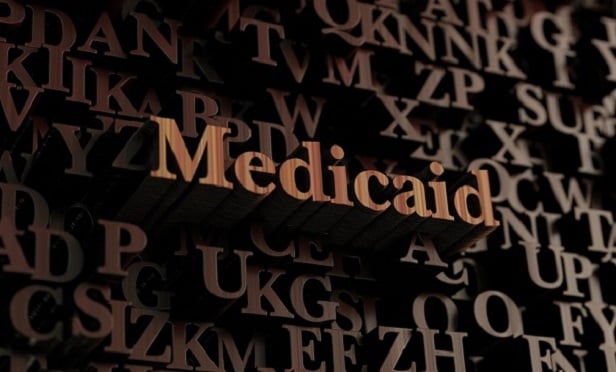 The proposal will offer states more negotiating power over drugs costs in exchange for greater accountability for program results. (Image: Shutterstock)
The proposal will offer states more negotiating power over drugs costs in exchange for greater accountability for program results. (Image: Shutterstock)
They may be called something else in the Trump administration's attempt to rebrand them, but in its latest push to protect block grants from legal challenges, it amounts to the same thing: letting states cap a portion of their spending on Medicaid.
According to a Politico report, the latest take on the block grant program, now termed "Healthy Adult Opportunity," long a priority of Republicans, would allow states to submit a request to cap funding for adults covered by Medicaid expansion, as well as limit health benefits and drugs available to program participants.
Related: GAO hits Trump administration on costs of Medicaid work requirements
According to the proposal, "Demonstrations approved utilizing this approach will offer states far greater flexibility and discretion than is available under ordinarily-applicable Medicaid rules as well as the freedom to manage their programs within certain parameters and expectations without the need for complex amendments or advance federal approval of certain changes."
The proposal will offer states more negotiating power over drugs costs in exchange for greater accountability for program results. In addition, states will have more flexibility over cost-sharing and customizing benefits.
Despite the fact that Trump repeatedly pledged to protect Medicaid during his 2016 campaign, he's pursuing this policy, developed by Medicaid chief Seema Verma. This will mark a notable step in conservatives' efforts to contain the safety net program, which currently covers 1 in 5 Americans.
For her part, Verma is pushing the rebranding to colleagues as a "signature initiative of her tenure" in the wake of a very public spat with Alex Azar, secretary of Health and Human Services.
"This opportunity is designed to promote the program's objectives while furthering its sustainability for current and future beneficiaries, and achieving better health outcomes by increasing the accountability for delivering results," Verma said in a statement. "We've built in strong protections for our most vulnerable beneficiaries, and included opportunities for states to earn savings that have to be reinvested in strengthening the program so that it can remain a lifeline for our most vulnerable."
Verma claims that the rebranded block grants won't affect disabled patients and the poorest receiving Medicaid, and states will be permitted to reinvest any savings into care improvements for Medicaid beneficiaries. There is a requirement for states to report on how the new system performs in real time regarding whether Medicaid patients see declines in access to providers or health outcomes, which advocates for the program hope will help protect it from legal challenges.
Opponents to the block grant program say that the administration doesn't have the authority to cap Medicaid spending.
Verma's previous overhaul that sought to impose work requirements on Medicaid beneficiaries, says the report, "has largely been stalled after a federal judge said the health department failed to consider whether the work rules would meet a statutory program goal of improving patient health."
Litigation is almost guaranteed to pursue the program, particularly since The Hill reports that 35 Democrats have signed a letter, led by Representative Joe Kennedy, D-MA, warning the administration not to move to block grants and saying that they're illegal.
In part, the letter says, "The administration should not issue any guidance encouraging block grant waivers, should reject these waivers and the concept of block grants, and urge any state that is considering this misguided policy to commit its energy to implementing Medicaid as Congress intends." Lawmakers also wrote, "Previous statements from the administration make it clear that the goal of these block grants is to cut benefits and further limit access to publicly funded health care."
Read more:
© 2025 ALM Global, LLC, All Rights Reserved. Request academic re-use from www.copyright.com. All other uses, submit a request to [email protected]. For more information visit Asset & Logo Licensing.







